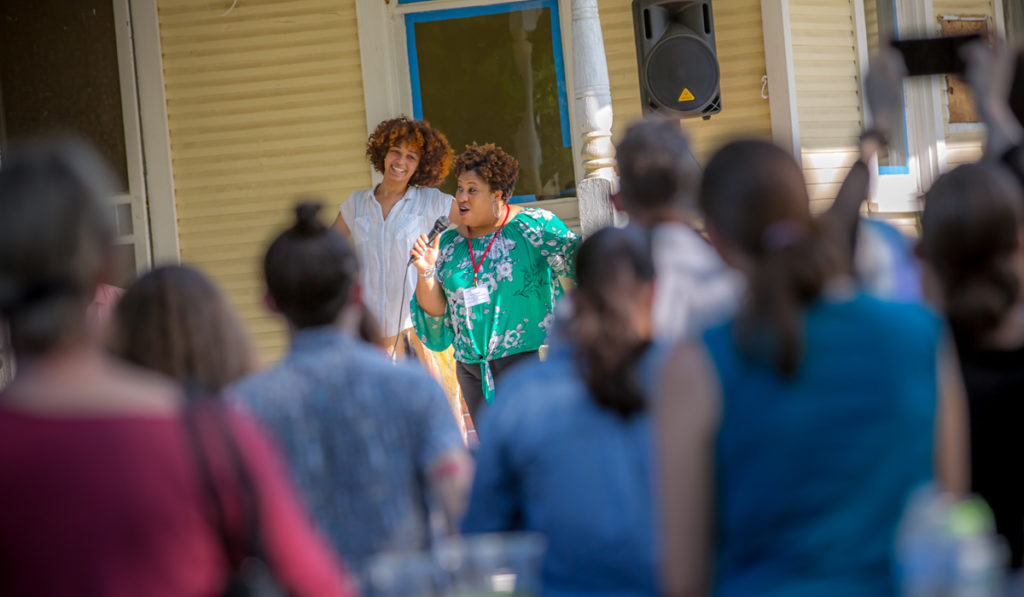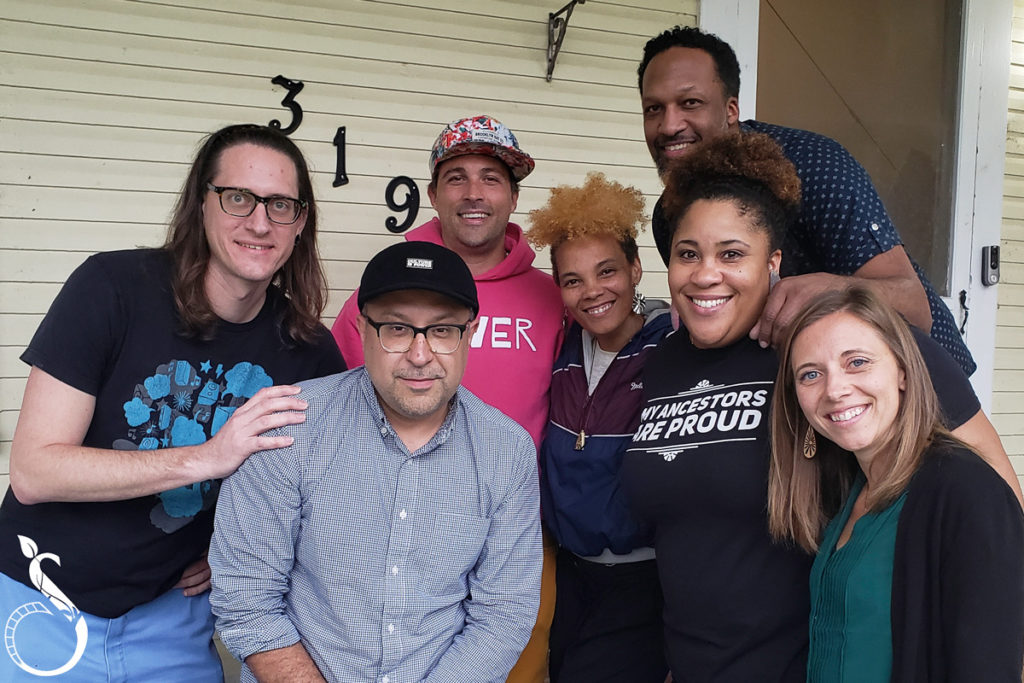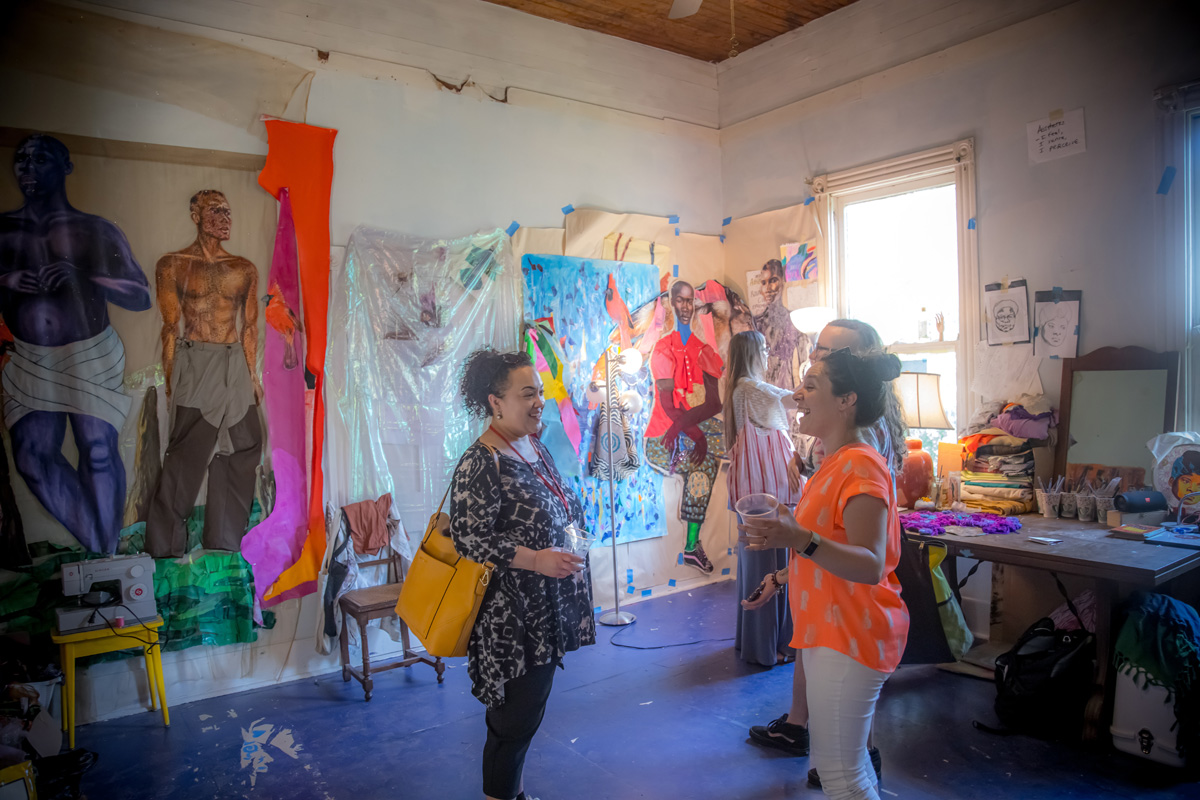Sipp Culture Lead Artist and Director Carlton Turner’s family has lived in the Utica community for eight generations. Utica was once thriving with production from cotton gins to lumber yards, he describes, but the town has become a shell of its former self. Industries have disappeared, and two of their high schools and the local grocery store closed.
“That reality really didn’t gel with my understanding of the community,” Turner told the Mississippi Free Press. “We wanted to create a space where the community can begin to dream about what it wants to be without people telling us who we are and what we are going to be.”
That “we” he refers to is The Mississippi Center for Cultural Production, or Sipp Culture, an organization started in 2017 in Utica that focuses on comprehensive community development through arts and agriculture.
Through art, Turner wants to shift the mindset of the community from being consumers of art first to producers of art, he said. There are very few people in Utica that don’t participate in the arts, which he sees as a process people do in their daily lives through language, food and culture.
“When we think about art, I’m not thinking about art with a capital A that hangs in museums or is seen on a stage,” he said. “Although those are valid forms of art and we support that too, we also want to support the piano player at the church that has been playing there for years.”

To help support local art, the organization is launching the Sipp Culture Artist Relief Fund to assist artists and art organizations facing economic crisis during the pandemic. The $500,000 relief fund is part of a $5-million grant from The Andrew W. Mellon Foundation to the Intercultural Leadership Institute.
The institute is made up of five organizations—Sipp Culture, Alternate ROOTS, First Peoples Fund, National Association of Latino Arts & Cultures and PA’I Foundation—that will provide support to 1,500 artists and organizations of color in Alabama, Arkansas, Louisiana, Tennessee and Mississippi.
“The work of artists has been devalued and marginalized to the point where it’s difficult for artists to make a living even in the best of times,” Turner said. “When a pandemic hits and the economic collapse that has followed it, we know artists are going to be disproportionately impacted as well.”
Turner said that the five southern states were chosen due to their geographic and cultural connection to each other.
“We’re based in Mississippi, and our residency program and the way we think about our
work is that what happens in Mississippi, what happens in the South, impacts our entire country,” he said.
“This is the land of Choctaw people, the Natchez people and the Chickasaw people, and that land stretches across the Delta, stretches across the Southern Appalachia into the deep south.”
Turner, who has been an artist for 25 years, said the life can be especially difficult for creators and organizations of color. Small organizations that are led by and serve communities of color rarely get funded, and the percentage of funding they receive from philanthropic sources isn’t sufficient, he said.

“There’s a lot of support structures out there for artists, but most of the time our artists don’t get supported through them,” the director said. “And even in the COVID relief, there have been some national programs that have been launched, and although they support artists of color, artists that live in our community rarely even get noticed on that level and very rarely receive that type of funding. So that’s what this fund is looking to support.”
The Intercultural Leadership Institute, which Turner co-founded, has been raising these funds for the past four to five months with the goal of supplying funds to artists where they don’t have to jump through hoops to receive, he said. The guidelines for the fund are on the Sipp Culture website.
The funds are non-restricted, so they can be used to pay for bills and groceries or for a vacation, Turner said.
“What we want to make sure is that we’re circulating resources throughout the communities of people of color in the South that rarely get these opportunities. We also want to focus on rural communities because we know that it’s even more difficult for rural artists to be acknowledged for their work,” he added.
For these turbulent times and beyond, Turner believes the role of the artist is to reflect the moment, to be a prophet of the future, and challenge humanity on the possibilities that exist for change and to include that in the larger conversation.
“The best artists that I know that’s what they’ve done. They’re aspirational. They shoot for something that we haven’t achieved yet, and they enter that into the public course,” he said.

It’s important that an organization from rural Utica, Miss., is one of five national organizations participating in this work and the power that exists in rural spaces, Turner said. “We’re excited that we’re able to do this. I feel like the organizations that we’re working with are organizations that we believe in their mission, we believe in their leadership, and we want to figure out how we can do better work long term,” he said.
For more information about how artists and organizations can apply for the Sipp Culture Artist Relief Fund, visit www.sippculture.com.






